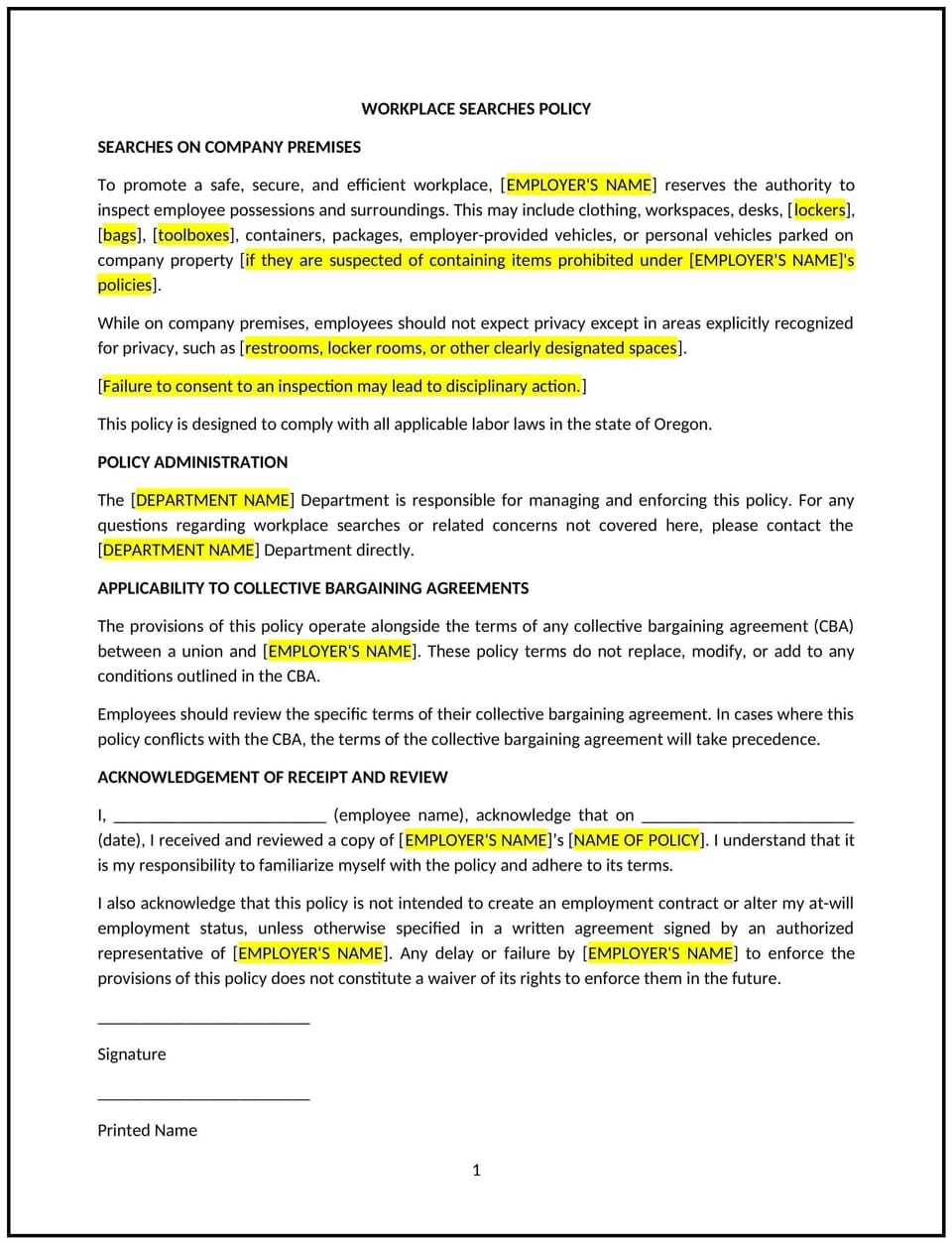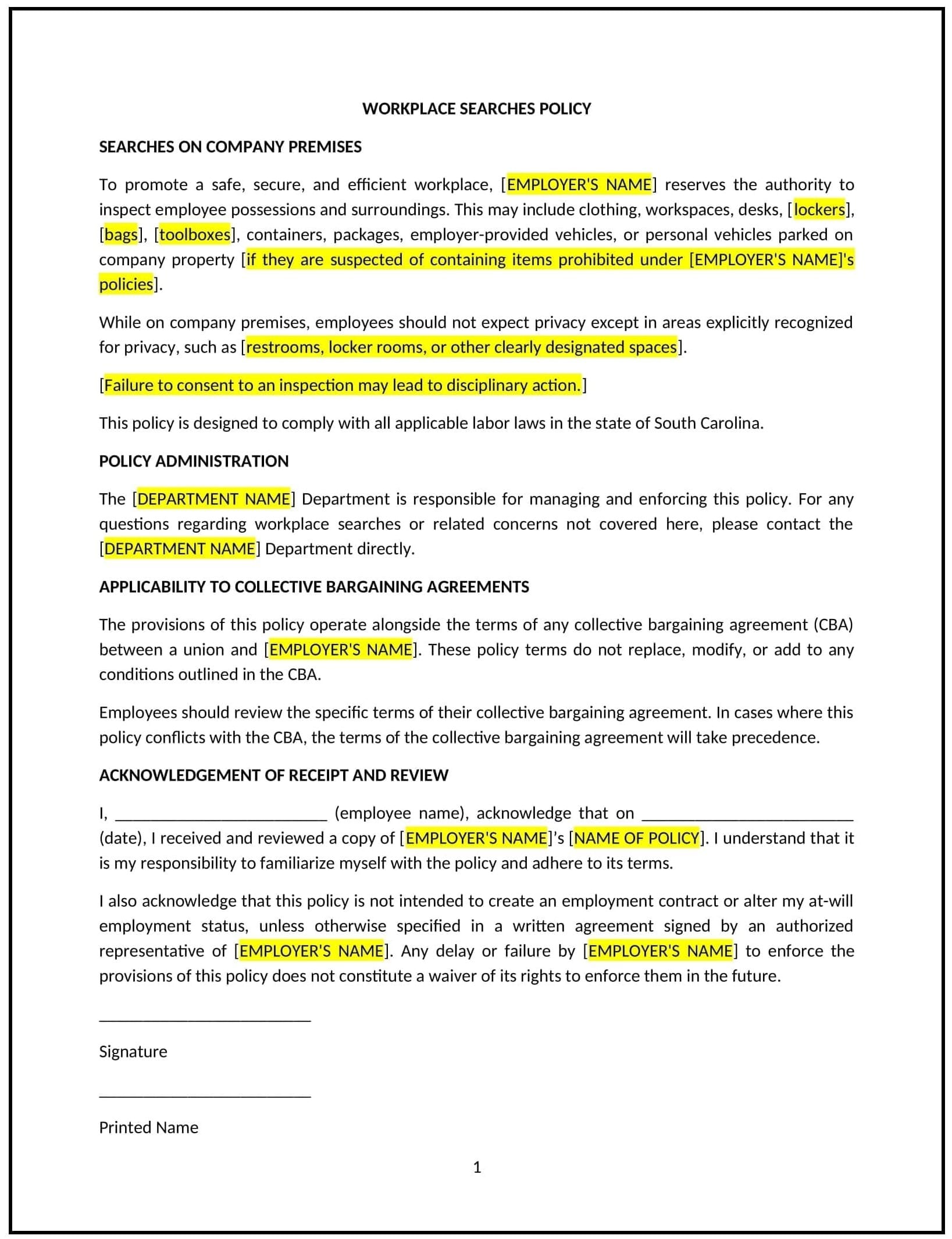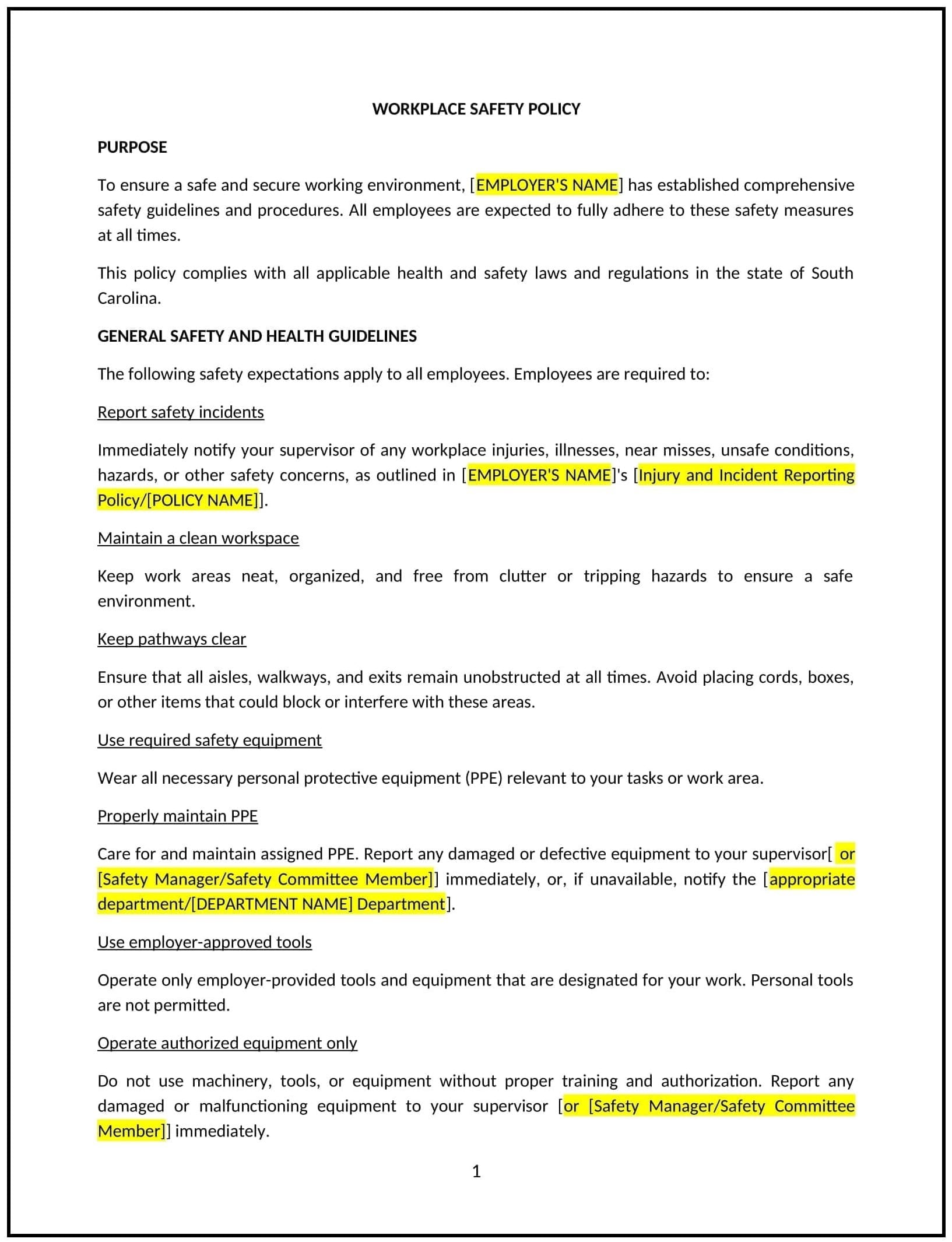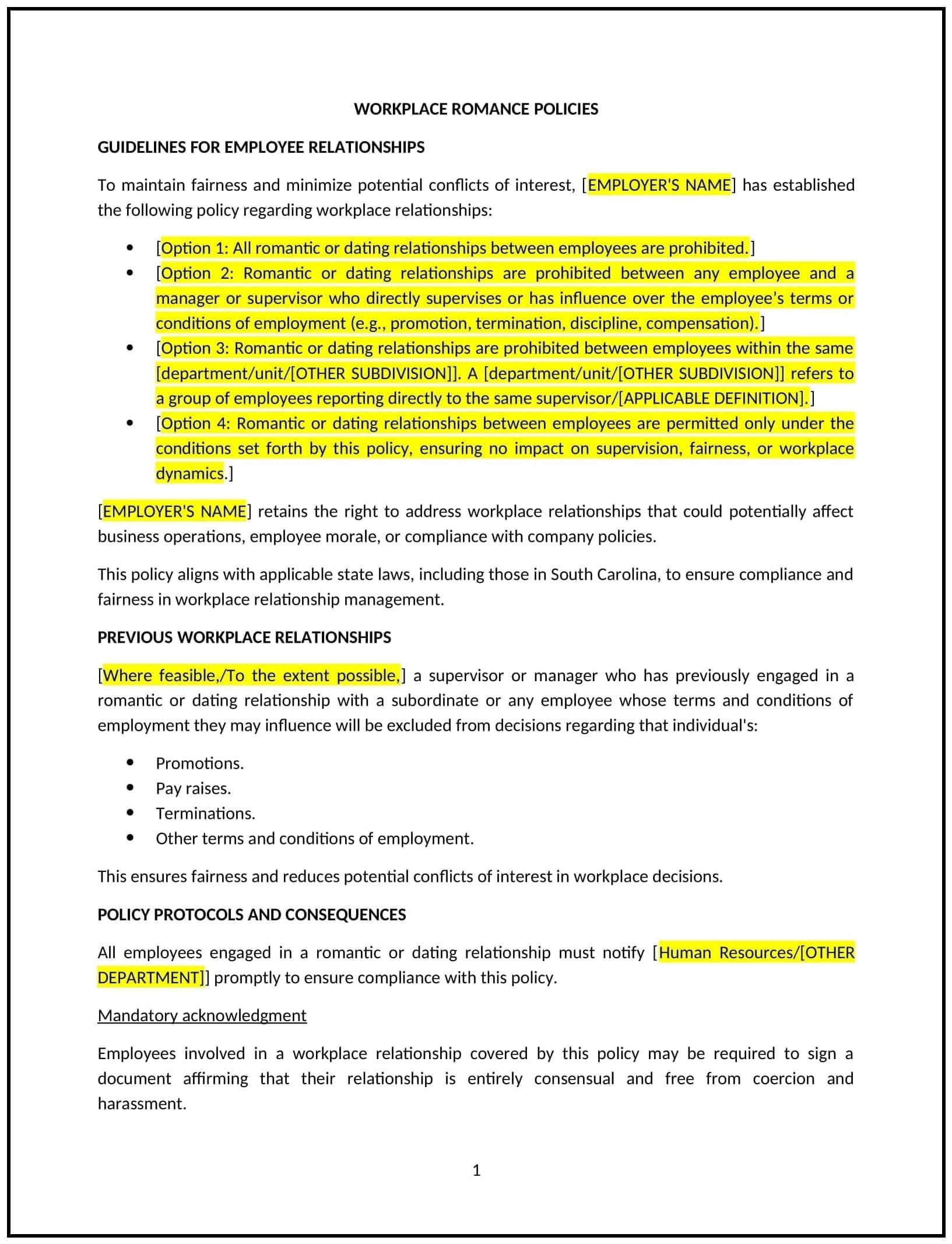Workplace searches policy (Oregon): Free template

Workplace searches policy (Oregon)
This workplace searches policy is designed to help Oregon businesses establish clear guidelines for conducting searches in the workplace. It outlines the circumstances under which searches may occur, the procedures for conducting them, and the rights of employees.
By adopting this policy, businesses can maintain security, protect company property, and ensure transparency in their search procedures.
How to use this workplace searches policy (Oregon)
- Define scope: Clarify what types of searches are covered, such as searches of desks, lockers, vehicles, or electronic devices.
- Establish reasons for searches: Specify the circumstances under which searches may be conducted, such as suspected theft or policy violations.
- Outline procedures: Describe the steps for conducting searches, including obtaining consent (if required) and ensuring privacy where possible.
- Address employee rights: Explain employees’ rights during a search, such as the right to be informed and the right to have a witness present.
- Train managers: Educate supervisors on conducting searches fairly and in compliance with the policy.
- Review and update: Assess the policy annually to ensure it aligns with current legal standards and workplace needs.
Benefits of using this workplace searches policy (Oregon)
This policy offers several advantages for Oregon businesses:
- Enhances security: Helps protect company property and sensitive information by addressing potential risks.
- Promotes transparency: Ensures employees understand the circumstances and procedures for workplace searches.
- Reduces conflicts: Provides clear guidelines to prevent misunderstandings or disputes related to searches.
- Mitigates risks: Reduces the likelihood of legal disputes by following fair and consistent search procedures.
- Builds trust: Demonstrates a commitment to fairness and respect for employee rights.
Tips for using this workplace searches policy (Oregon)
- Communicate clearly: Ensure all employees understand the policy and the reasons for workplace searches.
- Train managers: Equip supervisors with the skills to conduct searches fairly and in compliance with the policy.
- Document searches: Keep records of all searches, including the reasons, procedures, and outcomes.
- Respect privacy: Conduct searches in a manner that respects employee privacy to the extent possible.
- Update regularly: Review the policy annually to ensure it remains effective and compliant with legal standards.
Q: How does this policy benefit businesses?
A: It enhances security, promotes transparency, and reduces the risk of legal disputes related to workplace searches.
Q: Can businesses search employees’ personal belongings?
A: Businesses may search personal belongings if there is a legitimate reason and the policy allows it, but they should respect employee privacy and follow proper procedures.
Q: Do employees have the right to refuse a search?
A: This depends on the policy and circumstances. Employees should be informed of their rights, and businesses should obtain consent where required.
Q: What should businesses do if an employee objects to a search?
A: Businesses should address the objection respectfully, explain the reasons for the search, and follow the procedures outlined in the policy.
Q: How often should businesses review this policy?
A: Businesses should review the policy annually or as needed to ensure it aligns with current legal standards and workplace needs.
This article contains general legal information and does not contain legal advice. Cobrief is not a law firm or a substitute for an attorney or law firm. The law is complex and changes often. For legal advice, please ask a lawyer.


